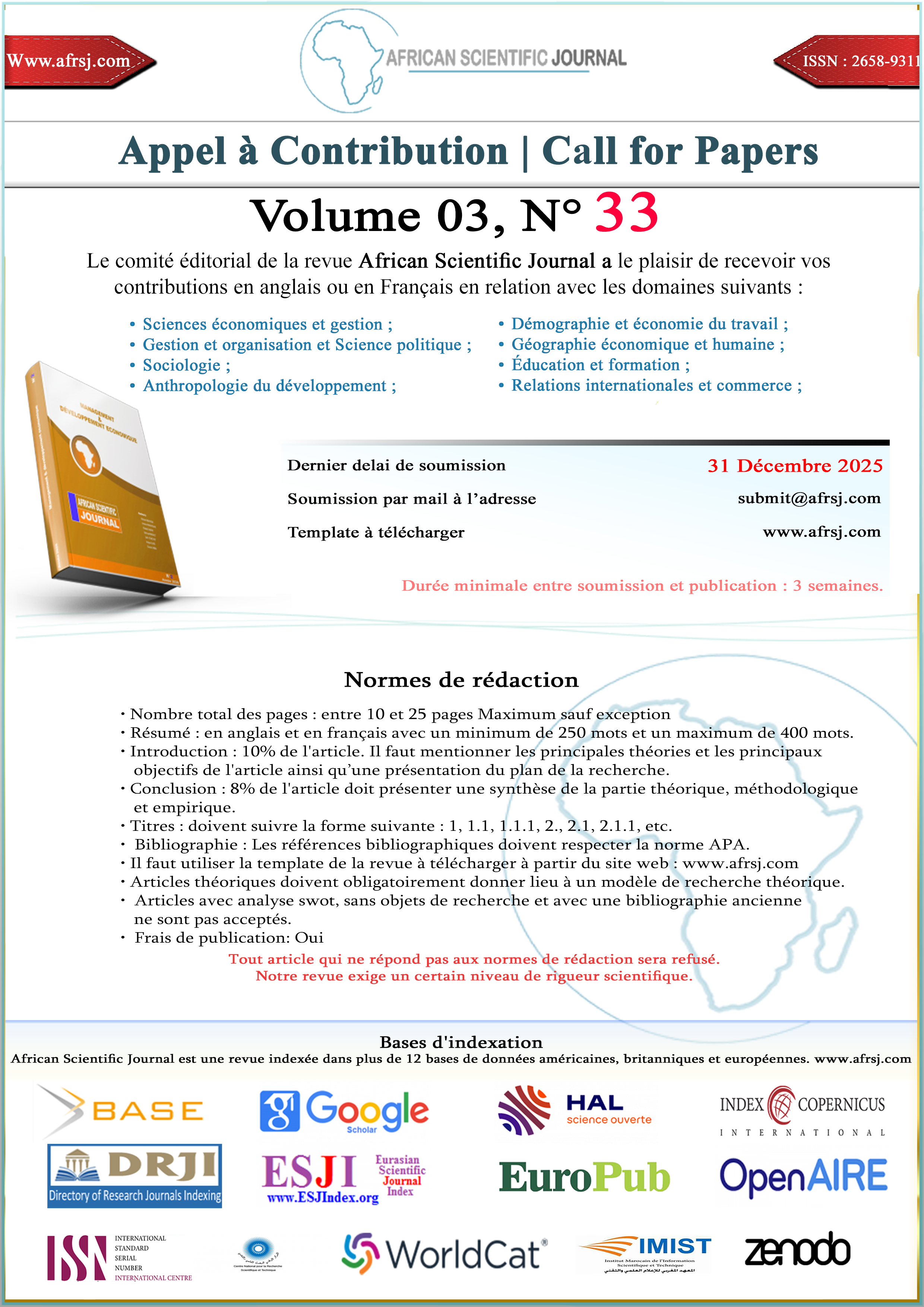The New Public Management in Morocco: A Theoretical Approach to the Dynamics of Public Administration Modernization
DOI :
https://doi.org/10.5281/zenodo.17698136Résumé
Abstract
This article presents an in-depth theoretical reflection on the deployment of New Public Management (NPM) in Morocco, situated within the broader context of public administration reforms initiated since the early 1990s. Through a critical review of academic and institutional literature, it explores the ideological, conceptual, and practical foundations of NPM while analyzing the dynamics of its implementation within the Moroccan administrative system. The central objective is to assess to what extent this managerial model originally rooted in Anglo-Saxon administrative reforms has been adapted to, or has conflicted with, Morocco’s sociopolitical, institutional, and cultural specificities.
Emerging from administrative reforms undertaken in Anglo-Saxon countries during the 1980s, NPM gradually established itself as a dominant global paradigm emphasizing performance, accountability, and efficiency in public sector management. It is based on the introduction of private-sector principles and techniques, such as results-based management, contractualization, decentralization of decision-making, and performance evaluation. In Morocco, NPM has inspired several modernization initiatives, including the digitization of public services, the rationalization of bureaucratic processes, and the promotion of managerial responsibility within public institutions.
However, the article argues that the Moroccan experience with NPM remains partial, fragmented, and often technocratic, marked by a formal adoption of managerial tools without a genuine transformation of administrative culture or governance logic. The predominance of legalistic traditions, hierarchical bureaucratic structures, and political centralization often limits the effective translation of NPM principles into practice. As a result, managerial reforms tend to coexist with persistent structural rigidities, thereby generating tensions between the pursuit of efficiency and the need to preserve public value, social equity, and democratic accountability.
The article concludes that beyond the simple importation of managerial instruments, the modernization of Morocco’s public administration requires the development of a contextualized model of public governance. Such a model should reconcile managerial performance with the ethical and democratic imperatives of the public sector, fostering an administrative culture grounded in transparency, participation, and sustainable public value creation.
Keywords: New Public Management, performance, administrative reform, public governance, Morocco, state modernization, rationalization, evaluation.
Téléchargements
Publiée
Comment citer
Numéro
Rubrique
Licence
(c) Tous droits réservés African Scientific Journal 2025

Ce travail est disponible sous licence Creative Commons Attribution - Pas d'Utilisation Commerciale - Pas de Modification 4.0 International.





















